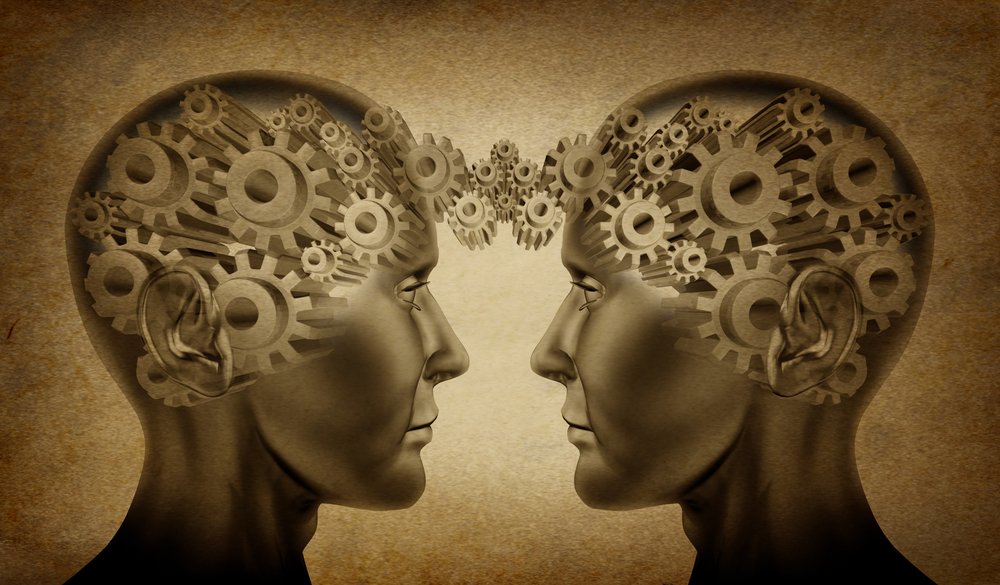Brain Damage Linked to MS Affects Ability to Interpret Others’ Emotions and Intentions, Study Reports
Written by |

How multiple sclerosis affects the “social brain,” which governs the ability to understand how others think and feel — a skill called social cognition — is linked to specific types of brain damage that occur in MS: both lesions and microscopic changes taking place in the brain’s white matter, a research team from the University of Coimbra in Portugal reports in the largest imaging study of this kind to date.
The study, titled “Disconnection as a mechanism for social cognition impairment in multiple sclerosis,” identified those areas affected by the disease in what researchers believe is the brain’s social network. As a next step, scientists said they need to understand more about these areas, and ways to strengthen a patient’s social cognition skills. The work was published in the journal Neurology.
“Understanding how MS affects the ‘social brain’ has not been well studied, but the ability to interpret other people’s feelings and intentions may influence people’s ability to maintain a job and their relationships with family and friends,” Sonia Batista, MD, the study’s lead author, said in a press release.
“These skills are very important for people with MS since having good support is one of the main factors in whether people have a good quality of life,” she added.
The team recruited 60 MS patients and an equal number of healthy people of the same age, sex, and educational level. The patient group had been sick for an average of 11 years. The majority of them — 50 patients — had relapsing-remitting MS, while the remaining 10 had secondary progressive MS.
Social cognition is commonly measured using two so-called “theory of mind” tests. In one, participants are asked to describe someone’s mental state by looking at photographs of a person’s eyes. They have to choose among four descriptive words, such as “anxious” or “embarrassed,” they think best captures the person’s emotional state as depicted through the eyes.
The other test uses silent videos of people interacting. Participants choose one of two words that best describes the interaction they are witnessing. The test examines a person’s ability to infer the intentions, dispositions, and beliefs of another person.
All participants also underwent brain scans, both the magnetic resonance imaging (MRI) scans commonly used to assess brain lesions in MS, and a more advanced scan capable of tracing microscopic changes in the brain’s white matter.
People with MS scored lower on both tests: their responses were correct 59 percent of the time on the eye test, and 75 percent on the video test. Their healthy counterparts, in comparison, scored 82 percent and 88 percent correct on the two tests.
Interestingly, deficits in recognizing another’s emotional state and intentions were not linked to disease duration, depression, levels of fatigue, or disability in the MS patients. Rather, it was the volume of brain lesions detected in the scans that seemed related to difficulties with social cognition.
Likewise, microscopic abnormalities in patients’ white matter were evident in several brain areas, and most widespread in those again thought to be linked to social cognition.
These areas make up what the research team believes is the brain’s social network — and in MS, it may be defective. “It appears that there is a disconnect in the social brain network,” Batista said.
Structural abnormalities in the white matter — tissue that connects different regions of the brain — were also seen when images related to T1 and T2 lesions were removed from the analysis. This led two researchers with the University of Manchester, in the U.K., to think that several mechanisms might contribute to problems in social cognition.
“This suggests that both the acute effect of lesions and more subtle diffuse pathology throughout normal-appearing brain tissue may have at least partially independent effects on social cognition,” they wrote in an accompanying editorial. “These findings converge with earlier studies to suggest a social network in the brain, which may be vulnerable to MS pathology, even at relatively early stages of the disease.”
Researchers in both Portugal and the U.K. also concluded that more work is needed to better understand social cognition and how it is affected by disease, as this area of personality and interaction is only starting to receive attention from the scientific community.
According to Batista, studies need to examine whether different MS types are affected differently, and if the social cognitive problems are linked to other cognitive issues, such difficulties with memory and thinking abilities.


